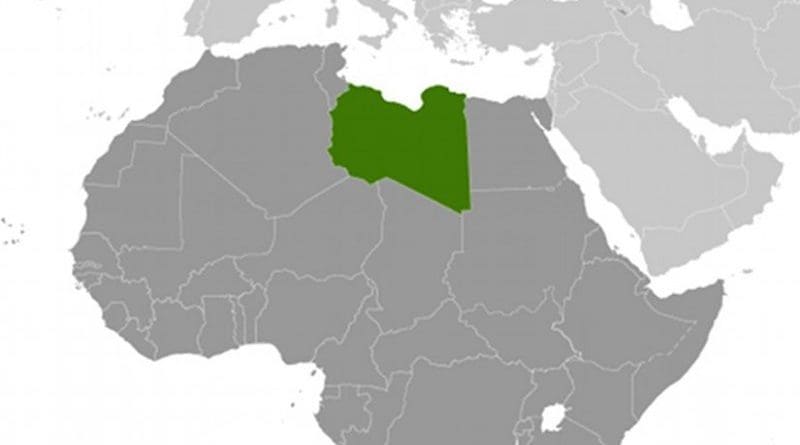Libya: Over 200 Die In Capsized Boats Off Coast
Around 200 bodies have been extracted so far from the Mediterranean Sea on Friday, after two boats carrying migrants capsized off the Libyan coastal town of Zuwara, an official from the Libyan coastguard told dpa.
“We have been trying to count the final number of dead bodies; and I think they have exceeded 200 by now,” the official said about the accidents, which occurred the previous day.
“We have pulled out many new bodies early in the morning and others have been thrown by the sea onto the shore as well, including children,” he added.
The Malta-based non-profit group Migrant Report had earlier said young children, aged 1 to 3, were among the dead.
“It’s a total chaos,” an official in Zuwara was quoted by Migrant Report as saying. “We hardly have the resources to deal with a small rescue, let alone this.”
The bodies taken to hospital were of migrants from Syria, Bangladesh and African nations, local Akhbar Libya 24 reported.
The first boat, carrying about 50 people, signalled for help Thursday. The second one was carrying around 400 passengers when it sank later. The Italian Coastguard, which coordinates rescue efforts off Libya, said it had received no emergency call.
“We are still waiting for more details, but we have learned there were 400 migrants on one of two boats; 100 have already been rescued – nine of them women, and two girls,” International Organization for Migration (IOM) mission chief for Libya, Othman Belbeisi, said.
Belbeisi said the Libyan authorities were “expecting to receive another 150 survivors today. The rest of the people are still missing in the sea.”
This is the latest in a series of disasters involving migrants, many of them refugees fleeing persecution and conflict, attempting to reach Europe from North Africa.
On Wednesday, 17 migrants drowned after their boat capsized off the same coast. The Italian Coastguard said 20 people, most of them from Nigeria and Ghana, were saved.
The same day, about 30 bodies were recovered from the hull of a boat carrying about 400 migrants intercepted 50 kilometres north of Libya, the Italian Coastguard said. The victims were apparently asphyxiated by engine fumes.
Over 2,900 migrants were rescued off Sicily, also on Wednesday, IOM said.
Hundreds of locals took to the streets of Zwuara town on Thursday night, protesting about the gangs who use their shores to smuggle migrants.
“We are fed up, and at the same time we cannot face armed militias who control everything in the absence of a governmental authority,” a resident from Zuwara said.
Libya was thrown into chaos after the 2011 revolution which ousted former strongman Moamer al-Gaddafi.
More than 2,500 migrants have died trying to cross the sea to Europe so far this year, UNHCR spokeswoman Melissa Fleming said in Geneva, adding that 310,000 refugees have successfully crossed the Mediterranean in the same period, 200,000 of them to Greece and 110,000 to Italy.
The total number of refugees making it across the Mediterranean in the whole of 2014 was 219,000, Fleming said.
Unprecedented numbers of refugees are braving the crossing as they flee war, persecution and poverty in the Middle East, Africa and Asia.
EU military vessels and planes are monitoring the Mediterranean Sea to gather information on migrant smuggling networks with a view to ultimately dismantling their trade and curbing the loss of life at sea.
The bloc’s foreign policy chief, Federica Mogherini, proposed Thursday in Vienna that the mission, launched in June, should now be expanded to the search and possible seizure of suspicious vessels on high seas.
Such a move requires the approval of EU member states.
However, critics argued that little would change unless the European Union has a mandate to operate closer to the Libyan border because smugglers have long been sending migrants to sea unaccompanied.

